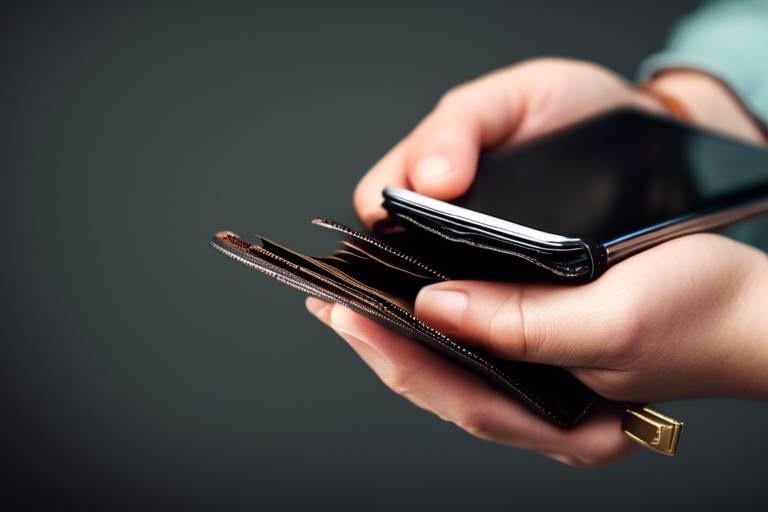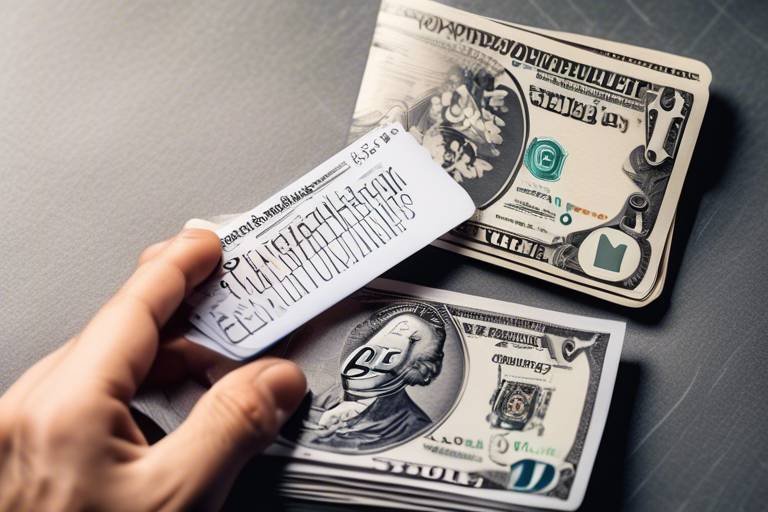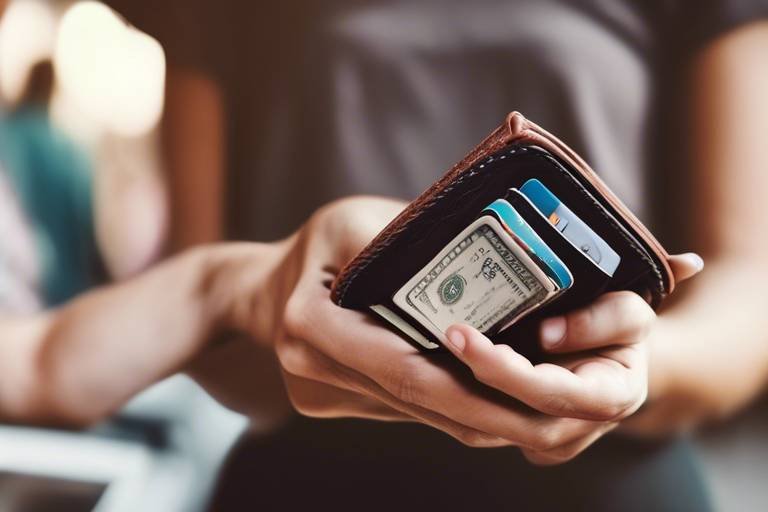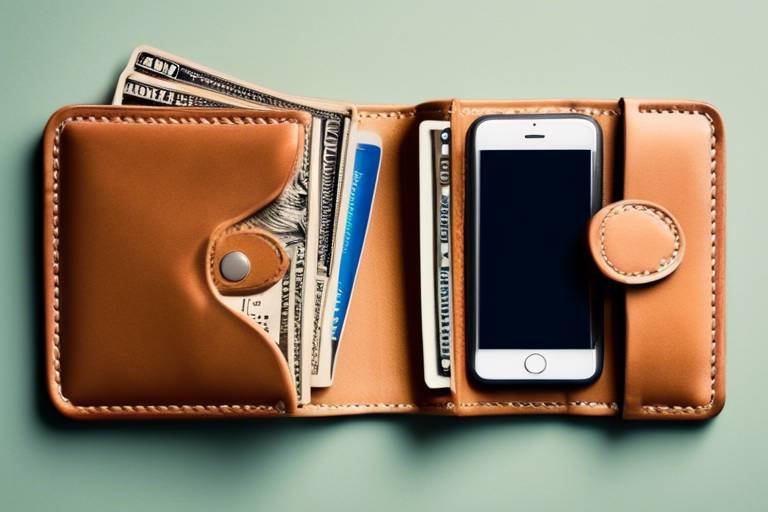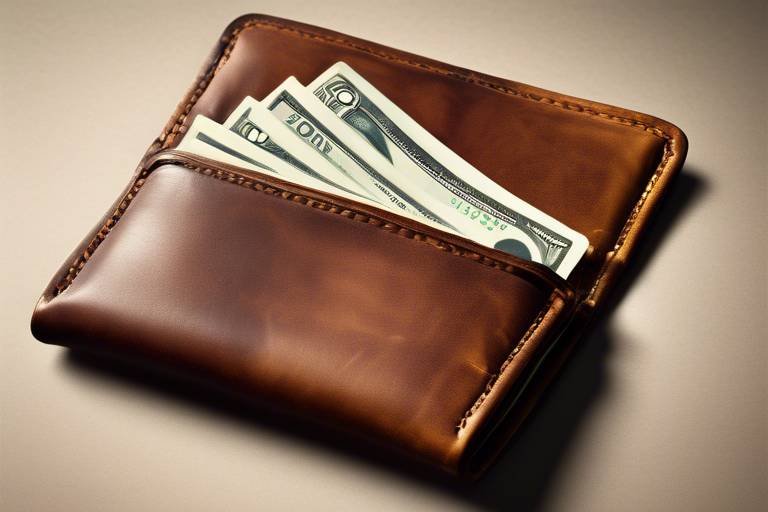How to Secure Your Crypto Assets - Best Wallet Practices
In today's digital age, the importance of securing your cryptocurrency assets cannot be overstated. With the rise of cyber threats and increasingly sophisticated hacking techniques, safeguarding your digital wealth is more critical than ever. This article will explore effective strategies for protecting your cryptocurrency holdings, ensuring that your investments remain safe from theft and loss. We'll dive into the various types of wallets available, essential security measures, and best practices that every crypto investor should adopt. So, whether you are a seasoned trader or just starting out, understanding how to secure your crypto assets is vital for your peace of mind.
First, let's unravel the mystery of crypto wallets. A cryptocurrency wallet is essentially a digital tool that allows you to store, send, and receive cryptocurrencies. Just like a physical wallet holds your cash, a crypto wallet secures your digital coins. However, not all wallets are created equal. There are three main types of wallets to consider:
- Hardware Wallets: Physical devices that store your private keys offline, providing an extra layer of security against online threats.
- Software Wallets: Applications installed on your computer or mobile device, offering convenience but requiring careful management of security settings.
- Paper Wallets: Physical printouts of your private keys and QR codes, which can be a secure option if stored properly.
Each wallet type has its unique advantages and disadvantages, tailored to different user needs and preferences. Understanding these differences is crucial for making informed decisions about how to secure your crypto assets effectively.
At the heart of every cryptocurrency transaction lies the private key. This alphanumeric string is your unique identifier and gateway to your digital assets. Without it, accessing your cryptocurrencies is impossible. Thus, managing your private keys securely is of utmost importance. If someone gains access to your private key, they can control your assets without your consent. It's akin to losing the keys to your house – once they're gone, so is your security.
Creating strong, unique private keys is essential for enhancing your crypto security. A weak key can be easily cracked by hackers, leading to potential loss of funds. Here are some best practices for key generation:
- Use a combination of uppercase and lowercase letters, numbers, and special characters.
- Avoid using easily guessable information like birthdays or common words.
- Consider using a password manager to generate and store complex keys securely.
By following these guidelines, you can significantly reduce the risk of unauthorized access to your cryptocurrency holdings.
One of the most effective ways to manage your private keys is by utilizing a password manager. These tools securely store your keys and passwords, encrypting them for added protection. This method not only enhances security but also provides convenience, as you only need to remember one master password. Imagine having a vault for your most precious assets – that's what a password manager does for your crypto keys!
Backup strategies are crucial for protecting your private keys from loss due to device failure or accidental deletion. Here are some effective methods:
- Store multiple copies of your keys in different secure locations, such as encrypted USB drives or cloud storage with strong encryption.
- Create a physical backup by writing your keys down and keeping them in a safe place.
- Regularly update your backups to reflect any changes in your keys.
By implementing these strategies, you can ensure that you have access to your assets even in unfortunate situations.
Selecting the appropriate wallet is vital for securing your cryptocurrency. The right choice depends on your specific security needs and how you plan to use your crypto. For example, if you're a frequent trader, a software wallet may be more convenient, while a hardware wallet may be better suited for long-term storage. Take the time to research and compare different wallet options to make an informed decision that aligns with your usage patterns.
Implementing two-factor authentication (2FA) is another essential step in securing your crypto accounts. 2FA adds an extra layer of security by requiring not only your password but also a second form of verification, such as a code sent to your mobile device. This means that even if someone manages to steal your password, they would still need access to your second factor to gain entry to your account.
Setting up two-factor authentication is a straightforward process. Most cryptocurrency exchanges and wallets offer 2FA options in their security settings. Here’s a quick guide:
- Log in to your account and navigate to the security settings.
- Choose the option to enable two-factor authentication.
- Follow the prompts to link your mobile device or authenticator app.
By taking these steps, you can significantly enhance the security of your crypto accounts.
There are several methods for two-factor authentication, each with its pros and cons:
| Method | Pros | Cons |
|---|---|---|
| SMS | Easy to set up and use. | Vulnerable to SIM swapping attacks. |
| Authenticator Apps | More secure than SMS. | Requires an additional app installation. |
| Hardware Tokens | Very secure and resistant to hacking. | Can be lost or damaged. |
Choosing the right method depends on your personal preferences and security needs. Weigh the pros and cons carefully to find the best fit for you.
Keeping your wallet software updated is crucial for security. Just like you wouldn't ignore updates on your phone or computer, your crypto wallet needs the same attention. Updates often contain important security patches that protect against the latest vulnerabilities. Neglecting to update your wallet can leave you exposed to potential threats.
Staying informed about potential vulnerabilities in your wallet software is essential. Regularly check for updates and read security advisories related to your wallet. Knowledge is power, and being proactive about security can save you from future headaches.
Enabling automatic updates for your wallet software simplifies the process of maintaining wallet security. This feature ensures that you always have the latest security features without having to remember to check for updates manually. Think of it as setting your car to automatically check its oil – it keeps everything running smoothly without you having to worry about it!
Q: What is the safest type of crypto wallet?
A: Hardware wallets are generally considered the safest option for long-term storage due to their offline nature.
Q: How often should I back up my private keys?
A: It's best to back up your private keys whenever you make changes or generate new keys, and regularly review your backup strategy.
Q: Is two-factor authentication really necessary?
A: Yes, 2FA adds an essential layer of security and is highly recommended for all crypto accounts.
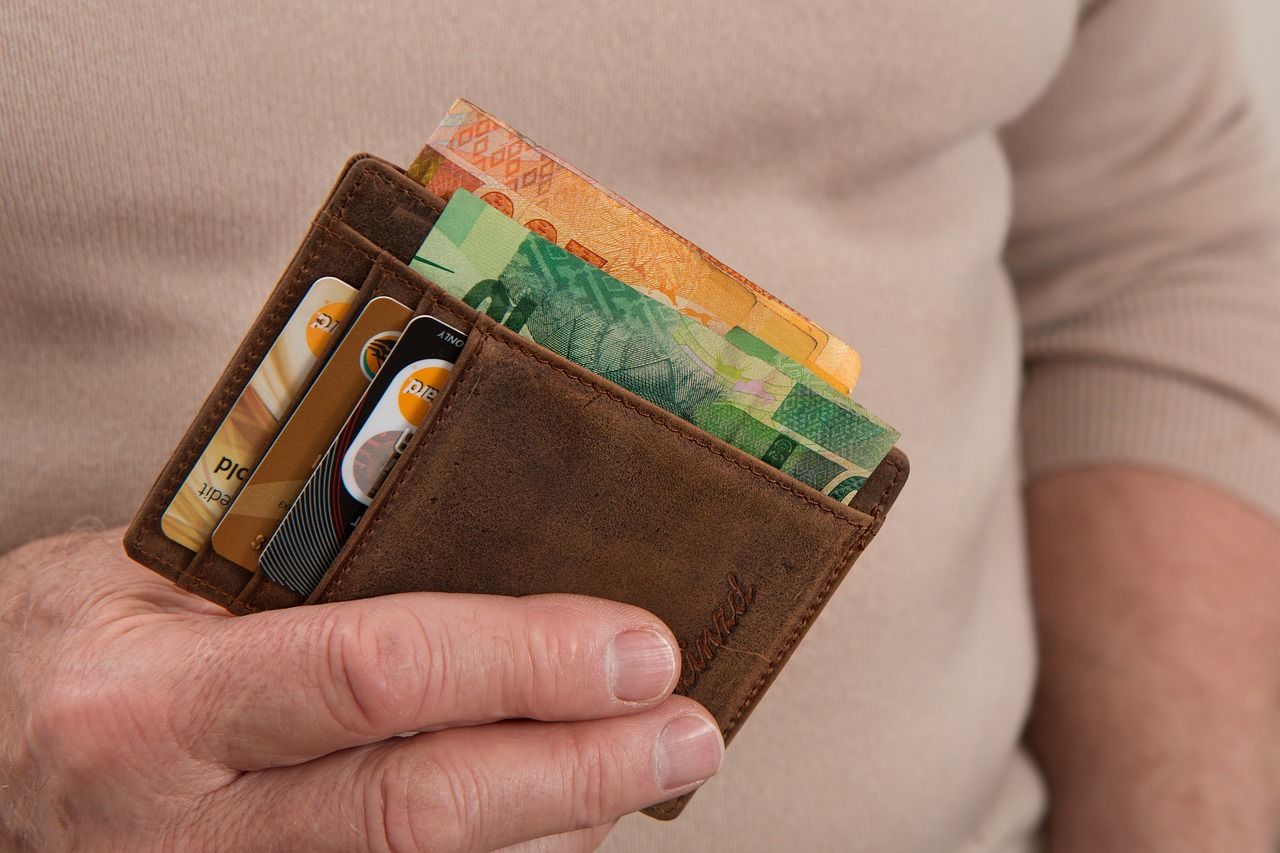
Understanding Crypto Wallets
When it comes to managing your cryptocurrency, understanding the different types of crypto wallets is essential. Think of a crypto wallet as a digital bank account that allows you to store, send, and receive cryptocurrencies. However, unlike traditional banks, crypto wallets don’t physically hold your coins; instead, they store the private keys that grant you access to your digital assets. These wallets come in various forms, each with its unique features and security levels.
There are three primary types of crypto wallets: hardware wallets, software wallets, and paper wallets. Each type serves different user needs and preferences, so let’s break them down:
- Hardware Wallets: These are physical devices that securely store your private keys offline. They are considered one of the safest options available, as they are less susceptible to online threats. Think of them as a safe deposit box for your crypto.
- Software Wallets: These wallets can be downloaded as applications on your computer or mobile device. They are convenient for everyday transactions but can be vulnerable to malware and hacking attempts. It’s like having a wallet in your pocket—easy access but requires caution.
- Paper Wallets: A paper wallet is simply a printed document that contains your private and public keys. While it’s immune to online attacks, it can be easily lost or damaged. Imagine it as a treasure map; if you misplace it, the treasure is gone!
Each wallet type has its pros and cons, and choosing the right one depends on your specific needs. For instance, if you plan to hold a significant amount of cryptocurrency long-term, a hardware wallet is likely your best bet due to its enhanced security features. On the other hand, if you’re looking for quick access and frequent transactions, a software wallet might be more suitable.
Moreover, the security of your crypto assets doesn't solely rely on the type of wallet you choose. It's also about how you manage your wallet. For example, using strong passwords, enabling two-factor authentication, and keeping your software updated are all crucial practices that can significantly enhance your wallet's security.
In conclusion, understanding the different types of crypto wallets is the first step in securing your digital assets. Each wallet type offers distinct advantages, and knowing the differences can help you make informed decisions that align with your cryptocurrency usage and security needs. As you delve deeper into the world of crypto, always remember that security should be your top priority!

Importance of Private Keys
When it comes to the world of cryptocurrency, private keys are akin to the keys to your treasure chest. Without them, your digital assets are essentially locked away, inaccessible and vulnerable to theft. So, what exactly are private keys? In simple terms, a private key is a secret number that allows you to access your cryptocurrency holdings. Think of it as a unique password that only you should know. If someone else gets hold of your private key, they can easily take control of your assets, leaving you with nothing but regret.
Why do private keys matter so much? The answer is straightforward. They are the only way to prove ownership of your cryptocurrencies. Unlike traditional banking systems, where a bank verifies your identity, the cryptocurrency ecosystem relies solely on these cryptographic keys. This decentralization is what makes cryptocurrencies appealing, but it also places the responsibility of security squarely on your shoulders. If you lose your private key or if it falls into the wrong hands, your funds could be lost forever.
Managing your private keys securely is crucial. Here are a few tips to keep in mind:
- Never share your private keys with anyone. No legitimate service will ever ask for them.
- Store your keys offline whenever possible. This reduces the risk of online theft.
- Use a hardware wallet for added security, especially if you hold a significant amount of cryptocurrency.
Now, let's talk about generating strong private keys. A weak key is like a flimsy lock on a treasure chest; it invites trouble. You should always aim for long, complex keys that are difficult to guess. Tools and software are available to help generate these keys, but remember, the best security starts with you. The more unique and complicated your private key, the better protected your assets will be.
In addition to generating strong keys, it’s essential to have backup strategies in place. Imagine losing access to your wallet due to a device malfunction or accidental deletion. Without a backup, you could lose everything. Regularly backing up your private keys ensures that you can recover your assets even in the worst-case scenarios. You can store backups on external drives, USB sticks, or even on paper in a secure location. Just make sure that wherever you store them, they are safe from prying eyes and potential disasters.
In conclusion, understanding the importance of private keys is fundamental to securing your cryptocurrency investments. They are your lifeline in the digital currency world, and taking the necessary precautions to protect them will go a long way in safeguarding your assets. Always remember: treat your private keys like the precious jewels they are, and you’ll be well on your way to enjoying the benefits of cryptocurrency without the fear of loss.
1. What happens if I lose my private key?
Losing your private key means losing access to your cryptocurrency. There is no way to recover your funds without it.
2. Can I share my private key with someone I trust?
No, you should never share your private key with anyone. Trust is not a substitute for security.
3. What is the best way to store my private keys?
The best practice is to store them offline in a hardware wallet or a secure physical location.
4. How can I generate a strong private key?
Use a reputable key generation tool that creates long, random strings of characters. The more complex, the better!

Generating Strong Private Keys
When it comes to securing your cryptocurrency, strong private keys are your first line of defense. Think of your private key as the secret password to your safe; if someone gets their hands on it, they can access everything inside. So, how do you create a key that is not just strong but also unique? Well, it starts with understanding the principles of key generation.
First off, a strong private key should be long and complex. The longer the key, the harder it is for malicious actors to crack it. Ideally, you want your private key to be at least 256 bits in length. This level of complexity can be achieved using a combination of uppercase and lowercase letters, numbers, and special symbols. For example, instead of using a simple password like "password123", consider something like "G7!xAq@9bZ3#pL1&". This not only makes it harder to guess but also significantly increases the number of possible combinations.
Another essential aspect of generating strong private keys is to use a reliable and secure method. You can use a hardware wallet or a reputable software wallet that includes a built-in key generator. These tools often employ algorithms that produce random keys, minimizing the risk of predictable patterns. Avoid generating keys on devices that are connected to the internet, as they can be vulnerable to hacking attempts. Instead, consider offline methods, such as using a dedicated computer that has never been connected to the internet.
To further enhance your key security, you might want to implement the following strategies:
- Use a Password Manager: These tools can generate and store complex passwords for you, ensuring you never have to remember them.
- Write it Down Securely: If you prefer a physical backup, write your private key down and store it in a safe place, like a safety deposit box.
- Regularly Update Your Keys: Consider changing your private keys periodically to reduce the risk of long-term exposure.
Finally, it’s crucial to remember that the security of your private key is only as strong as the measures you take to protect it. Always be vigilant and stay informed about the latest security practices in the crypto space. By following these guidelines, you can significantly reduce the risk of unauthorized access to your cryptocurrency holdings and ensure that your digital assets remain safe and secure.
Q: What is a private key?
A: A private key is a secret number that allows you to access and manage your cryptocurrency. It must be kept secure and confidential.
Q: How do I generate a strong private key?
A: Use a combination of letters, numbers, and symbols, and ensure it is at least 256 bits long. Utilize secure methods like hardware wallets or reputable software wallets.
Q: Should I store my private key online?
A: No, storing your private key online can expose it to hacking attempts. It's best to keep it offline or use a secure password manager.
Q: Can I change my private key?
A: Yes, you can generate a new private key and transfer your assets to a new wallet that uses this key.

Using Password Managers
In the ever-evolving world of cryptocurrency, where security is paramount, using a password manager can be a game-changer for safeguarding your private keys. Think of a password manager as your personal digital vault, designed to securely store and manage your passwords and sensitive information. By using a password manager, you not only simplify your life but also enhance your security. Imagine trying to remember a complex password for each of your crypto accounts—it's like trying to memorize a novel! Instead, a password manager allows you to create strong, unique passwords while only needing to remember one master password.
One of the significant advantages of password managers is their ability to generate strong passwords for you. These tools can create complex combinations of letters, numbers, and symbols, making it nearly impossible for hackers to crack them. For example, instead of using "Crypto123," which is easily guessable, a password manager can generate something like "G8#zQ9@jL2!vX4". This level of complexity is crucial in keeping your crypto assets secure. Furthermore, many password managers offer features such as encryption, which adds an extra layer of protection to your stored information.
When it comes to managing your private keys, a password manager can help you avoid the common pitfalls of manual storage. Instead of writing your keys down on a piece of paper or storing them in an insecure digital note, you can safely keep them in your password manager. This not only reduces the risk of losing your keys but also minimizes the chance of them being accessed by unauthorized individuals. However, it’s essential to choose a reputable password manager that offers robust security features, such as two-factor authentication and end-to-end encryption.
While password managers are incredibly beneficial, it’s crucial to remember that they are not infallible. Just like any other tool, they can be vulnerable if not used correctly. Here are a few best practices for using password managers effectively:
- Choose a reputable provider: Research and select a password manager with a strong reputation for security.
- Enable two-factor authentication: Always activate 2FA for your password manager to add an extra layer of security.
- Regularly update your master password: Change your master password periodically and ensure it is strong and unique.
In conclusion, incorporating a password manager into your cryptocurrency security strategy can significantly enhance your overall protection. By securely storing and managing your private keys, you can focus on what truly matters—trading and investing in your digital assets without the constant worry of theft or loss. Just remember, while a password manager is a powerful tool, it should be part of a broader security strategy that includes strong passwords, two-factor authentication, and regular software updates. Now that you know how to use password managers effectively, you’re one step closer to securing your crypto assets!
1. What is a password manager?
A password manager is a software application designed to store and manage your passwords and other sensitive information securely.
2. Are password managers safe?
Yes, when used correctly, reputable password managers offer strong encryption and security features, making them a safe choice for managing your passwords.
3. Can I use a password manager for my private keys?
Absolutely! A password manager can securely store your private keys, reducing the risk of unauthorized access.
4. Do I need to remember my password manager's master password?
Yes, the master password is the key to accessing your password manager, so it should be strong and memorable.

Backup Strategies for Private Keys
When it comes to securing your cryptocurrency, having a solid backup strategy for your private keys is not just a good idea—it's essential. Imagine losing access to your digital assets because of a simple mishap, like a device crash or accidental deletion. It’s a nightmare scenario that can easily be avoided with the right precautions. So, how do you ensure that your private keys are safe, secure, and easily retrievable when you need them? Let's dive into some effective backup strategies that can save you from potential heartache.
First and foremost, consider creating multiple copies of your private keys and storing them in different locations. This method is akin to having a spare key for your house; you wouldn’t want to keep all your backups in one place, right? For instance, you could store one copy on a USB drive kept in a safe, another in a secure cloud storage service, and perhaps even a third written down on paper and locked away in a safety deposit box. Each of these methods has its own pros and cons, which we’ll explore below:
- USB Drives: These are portable and easy to use, but make sure they are encrypted and stored securely to avoid physical theft.
- Cloud Storage: While convenient, ensure that your cloud service has strong encryption and two-factor authentication to prevent unauthorized access.
- Paper Backups: Writing down your private keys on paper can be the simplest method, but be cautious of fire or water damage. Consider using a fireproof and waterproof safe.
Another critical aspect of your backup strategy is the frequency of updates. As you make transactions or generate new keys, it’s vital to update your backups accordingly. Think of it like watering a plant; if you neglect it, it won’t thrive. Regularly revisiting your backup strategy ensures that you always have the latest information at your fingertips.
Moreover, consider using secure password managers that offer encrypted storage for your private keys. These tools can simplify the management of your keys and ensure that they are backed up automatically. Just remember, while password managers can provide convenience, they should be chosen wisely—opt for reputable services with strong security features.
Finally, test your backup strategy periodically. Just like you would practice an emergency drill, it’s essential to verify that you can access your private keys when needed. This practice can help you identify any potential issues before they become a real problem. So, take a moment to go through your backups and make sure everything is in order. After all, peace of mind is priceless when it comes to securing your crypto assets.
Q1: What is a private key?
A private key is a secret number that allows you to access your cryptocurrency. It is crucial for signing transactions and proving ownership of your digital assets.
Q2: How often should I back up my private keys?
It's advisable to back up your private keys whenever you generate a new key or make significant changes to your wallet. Regular updates can help ensure your backups are current.
Q3: Are paper backups safe?
Paper backups can be safe if stored properly. Keep them in a secure place, such as a safe or safety deposit box, to protect against physical damage or theft.
Q4: Can I use a password manager for my private keys?
Yes, a reputable password manager can securely store your private keys, but ensure that it uses strong encryption and has good security practices in place.
Q5: What should I do if I lose my private key?
If you lose your private key and do not have a backup, unfortunately, you may lose access to your cryptocurrency permanently. This highlights the importance of having a robust backup strategy in place.
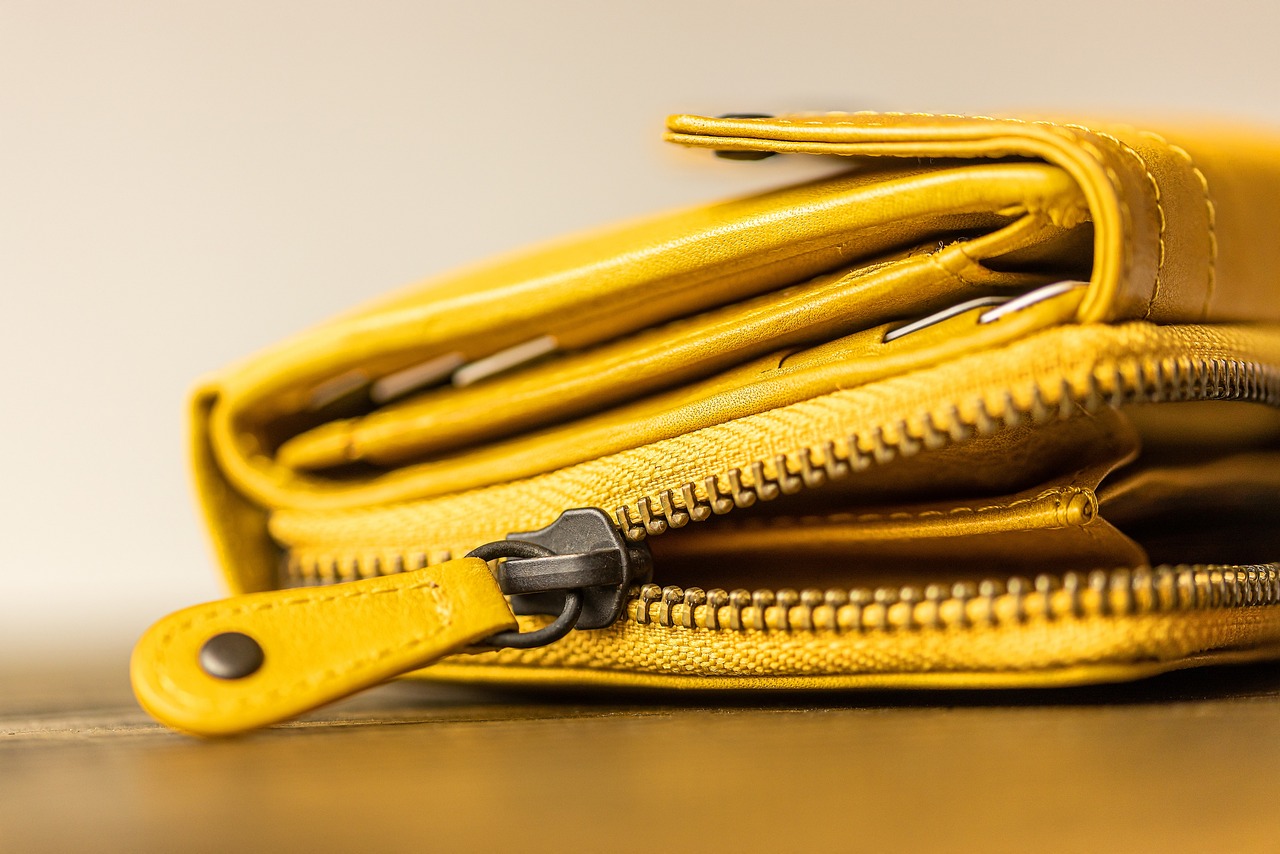
Choosing the Right Wallet
When it comes to securing your cryptocurrency, selecting the right wallet is paramount. With a plethora of options available, each tailored to different user preferences and security needs, making an informed choice can feel daunting. Think of your crypto wallet as a digital safe; you wouldn’t just pick any old box to store your valuables, right? The same principle applies here. So, let’s dive into the different wallet types and what you should consider when choosing one.
Firstly, it's essential to understand the three main types of wallets: hardware wallets, software wallets, and paper wallets. Each of these has its own unique set of features and security levels:
| Wallet Type | Advantages | Disadvantages |
|---|---|---|
| Hardware Wallet |
|
|
| Software Wallet |
|
|
| Paper Wallet |
|
|
When choosing a wallet, consider your usage patterns. Are you a frequent trader, or do you plan to hold your assets long-term? If you’re actively trading, a software wallet might be more convenient due to its accessibility and ease of use. However, for long-term storage, a hardware wallet is often recommended because it offers superior security. Imagine it like this: if you’re going to the bank every day, you wouldn’t want to carry all your cash with you; you’d keep the bulk of it safely stored away.
Another critical factor to consider is security features. Look for wallets that offer two-factor authentication, strong encryption, and backup options. The more layers of security, the better. It’s like locking your door, setting an alarm, and having a guard dog; each layer adds to your overall safety. Additionally, always research the wallet provider’s reputation. User reviews and expert opinions can provide valuable insights into the reliability and security of a wallet.
Lastly, think about ease of use. A wallet should be intuitive and easy to navigate, especially if you’re new to cryptocurrencies. No one wants to feel lost in a sea of complicated menus when trying to access their assets. Take the time to explore different wallets, read the user guides, and even watch tutorial videos. The right wallet will not only keep your assets secure but will also make managing them a breeze.
In summary, choosing the right wallet is a combination of understanding your needs, evaluating security features, and ensuring ease of use. By taking the time to research and select the best option for you, you’re setting yourself up for a safer and more enjoyable cryptocurrency experience.
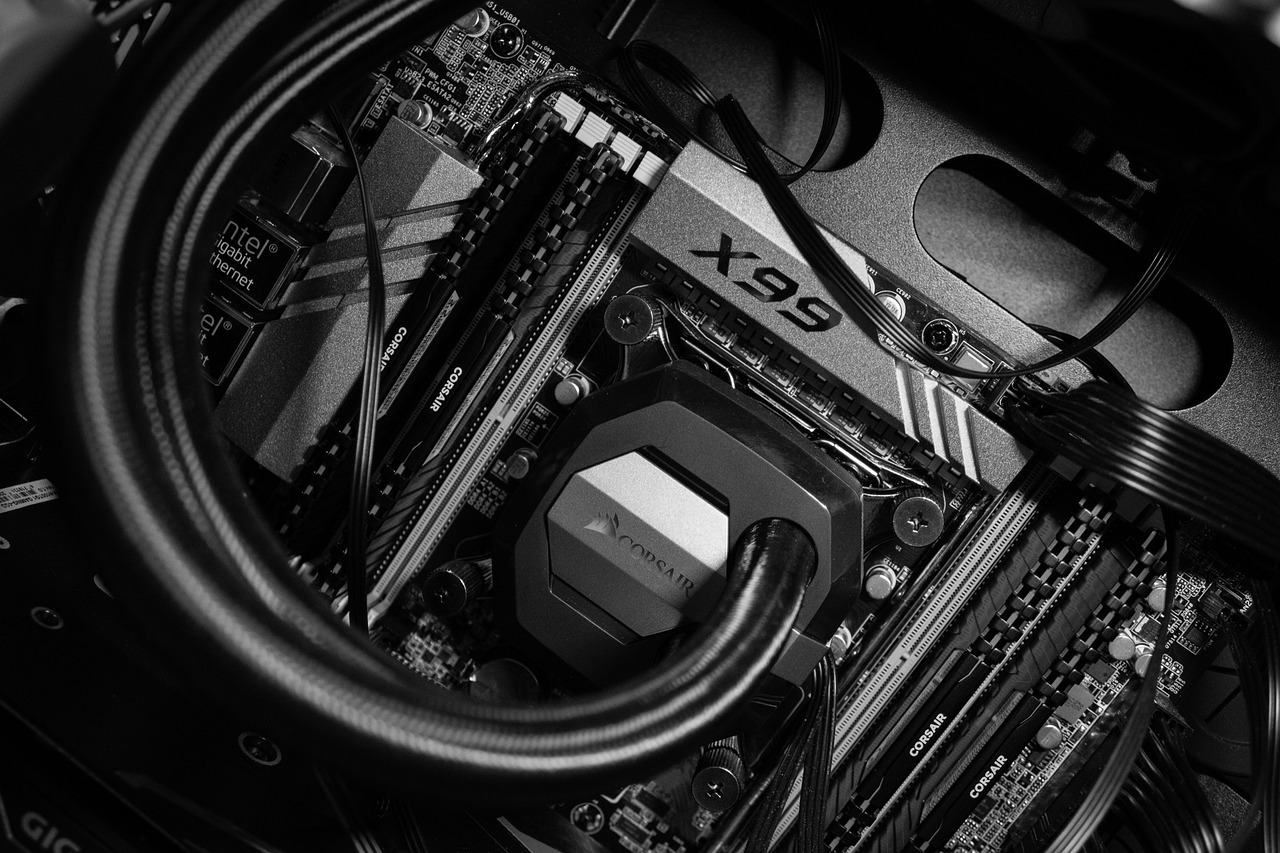
Two-Factor Authentication (2FA)
Implementing two-factor authentication (2FA) is one of the most effective ways to protect your cryptocurrency accounts from unauthorized access. In a world where cyber threats are becoming increasingly sophisticated, relying solely on a password is like locking your front door but leaving the window wide open. 2FA adds an extra layer of security by requiring not just your password but also a second piece of information that only you should have. This could be a code sent to your phone or generated by an app. Think of it as a double lock on your digital vault, making it significantly harder for intruders to gain access.
So, why is 2FA so crucial? Well, consider this: even the strongest passwords can be compromised through phishing attacks or data breaches. A single breach can expose your credentials, and without 2FA, you might as well be handing over the keys to your crypto kingdom. By enabling 2FA, you ensure that even if someone gets hold of your password, they won't be able to access your accounts without that second factor. This simple step can dramatically reduce the risk of theft.
There are various methods of implementing 2FA, and each comes with its own set of advantages and disadvantages. Some of the most common methods include:
- SMS Codes: A code sent to your mobile phone. While convenient, this method can be vulnerable to SIM swapping attacks.
- Authenticator Apps: Applications like Google Authenticator or Authy generate time-based codes. These are more secure than SMS as they don’t rely on your phone number.
- Hardware Tokens: Physical devices that generate codes. They are highly secure but can be costly and may be misplaced.
Choosing the right method of 2FA is essential for maximizing your security. While SMS codes are easy to use, they aren't the most secure option. On the other hand, authenticator apps provide a good balance of security and convenience. Hardware tokens offer the highest level of security but can be less practical for everyday use. Consider your lifestyle and how often you access your crypto accounts when making your choice.
In summary, enabling two-factor authentication is a crucial step in safeguarding your cryptocurrency investments. It’s like adding a second layer of security to your home—while your door may be locked, 2FA ensures that even if someone finds a way in, they still can’t access your most valuable possessions. So, take the time to set it up; your future self will thank you!
What is Two-Factor Authentication (2FA)?
2FA is a security process that requires two different forms of identification to access an account, typically a password and a second factor like a code sent to your phone.
Why should I use 2FA for my cryptocurrency accounts?
Using 2FA significantly reduces the risk of unauthorized access, even if your password is compromised.
What are the best methods for 2FA?
Authenticator apps are generally recommended for their balance of convenience and security, but hardware tokens offer the highest level of protection.
Can I use 2FA on all my crypto accounts?
Most reputable cryptocurrency exchanges and wallets support 2FA, but it's always a good idea to check the security settings of each platform.
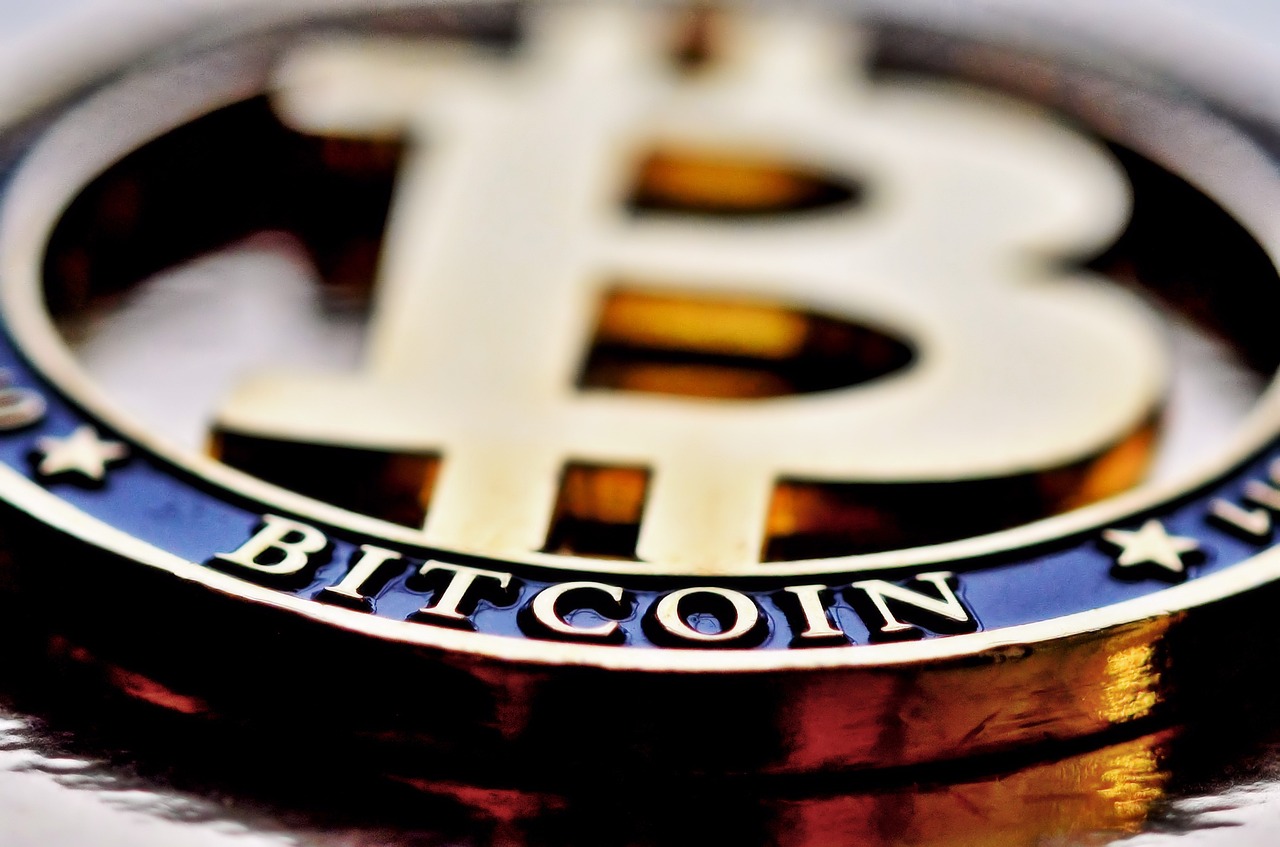
Setting Up 2FA
Setting up two-factor authentication (2FA) for your cryptocurrency accounts is a crucial step in enhancing your security. It adds an extra layer of protection beyond just your password, making it significantly harder for unauthorized users to gain access to your assets. So, how do you go about setting up 2FA? Let's break it down into a few straightforward steps that anyone can follow.
First, you'll want to log into your cryptocurrency exchange or wallet account. Once you're in, navigate to the security settings section. This is typically found under your account settings. Look for an option labeled "Two-Factor Authentication" or "2FA." Clicking on this will usually prompt you to choose your preferred method of authentication. You might be presented with options like using an authenticator app, receiving SMS codes, or even employing a hardware token.
For most users, using an authenticator app is the most secure choice. These apps, such as Google Authenticator or Authy, generate time-sensitive codes that change every 30 seconds. To set this up, you'll need to download the app on your smartphone. After installation, the platform will provide you with a QR code to scan with the app. This process links your account to the app, allowing it to generate the necessary codes.
Once you've scanned the QR code, the app will display a six-digit code. Enter this code back into the website to verify the setup. Remember, you may also be prompted to set up backup codes. These are essential in case you lose access to your authenticator app or phone. Write them down and store them in a secure location, but don’t keep them on the same device as your authentication app!
After everything is set up, make sure to log out and then log back in using your new 2FA method. This will confirm that everything is functioning correctly. It’s a good practice to regularly check your security settings and update your 2FA method if necessary. For instance, if you change your phone or lose access to your authenticator app, be sure to update your settings immediately to avoid being locked out of your account.
In summary, setting up 2FA is a simple yet effective way to protect your cryptocurrency holdings. By taking this extra step, you are making it much harder for potential hackers to compromise your accounts. Remember, security is a continuous process, and staying informed about the latest security practices is key to keeping your assets safe.
- What is 2FA? - Two-factor authentication is a security process that requires two different forms of identification to access an account, typically something you know (your password) and something you have (a code from an app or SMS).
- Is 2FA necessary for all crypto accounts? - While not mandatory, enabling 2FA is highly recommended for all cryptocurrency accounts to enhance security.
- What should I do if I lose access to my 2FA method? - Most platforms provide backup codes during the 2FA setup process. If you lose access, use these codes to regain entry or contact customer support for assistance.
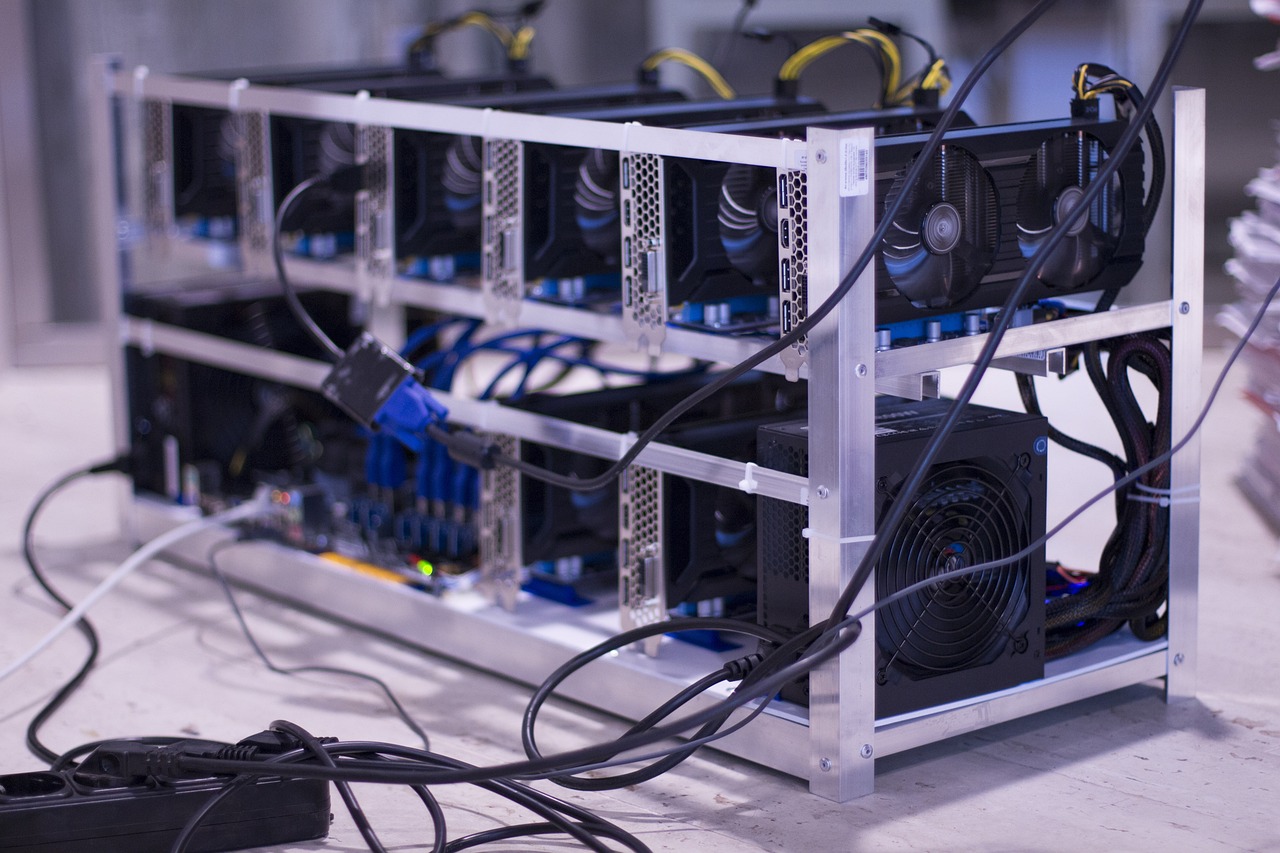
Choosing the Right 2FA Method
When it comes to securing your cryptocurrency accounts, choosing the right two-factor authentication (2FA) method can feel like picking the best armor for a knight. Each option has its own strengths and weaknesses, and understanding these can significantly enhance your security. So, how do you determine which 2FA method is best for you? Let's break it down.
First off, you have a few common options for 2FA:
- SMS-based 2FA: This is the most straightforward method, where a code is sent to your mobile phone via text message. While it's easy to use, it can be vulnerable to SIM swapping attacks, where hackers trick your carrier into transferring your phone number to a new SIM card.
- Authenticator Apps: Apps like Google Authenticator or Authy generate time-based codes that change every 30 seconds. This method is generally more secure than SMS since it doesn't rely on your phone number. However, if you lose your phone, you might find yourself locked out.
- Hardware Tokens: Devices like YubiKey provide the highest level of security. They generate codes and can even work with USB ports or NFC. While they are very secure, they can be a bit more cumbersome to use and require you to keep track of the physical device.
Now, let’s consider your personal needs and lifestyle. If you're always on the go and need something quick, SMS might seem appealing. But if you value security above all, opting for an authenticator app or a hardware token is a wise choice. It's like choosing between a quick snack and a nutritious meal; one fills you up fast, but the other sustains you longer.
Additionally, think about your tech-savviness. If you're comfortable with technology, using an authenticator app can be a seamless experience. However, if you're not as tech-savvy, you might prefer the simplicity of SMS. Just remember, the easier it is for you, the easier it might be for someone else to access your accounts.
Ultimately, the right 2FA method is the one that balances convenience with security for your specific situation. Don't hesitate to experiment with different methods until you find the one that fits you best. The goal is to add that extra layer of protection without making your life overly complicated. After all, the best defense is a good offense, and in the world of cryptocurrency, being proactive about your security is key.
Here are some common questions about choosing the right 2FA method:
- What is the most secure 2FA method? Hardware tokens are generally considered the most secure option due to their physical presence and resistance to online attacks.
- Can I use multiple 2FA methods? Yes, many services allow you to set up multiple 2FA methods for added security. For example, you might use an authenticator app as your primary method and SMS as a backup.
- What should I do if I lose my phone with my 2FA app? Most authenticator apps provide backup codes when you first set them up. Keep these codes in a safe place, as they can help you regain access if your device is lost.
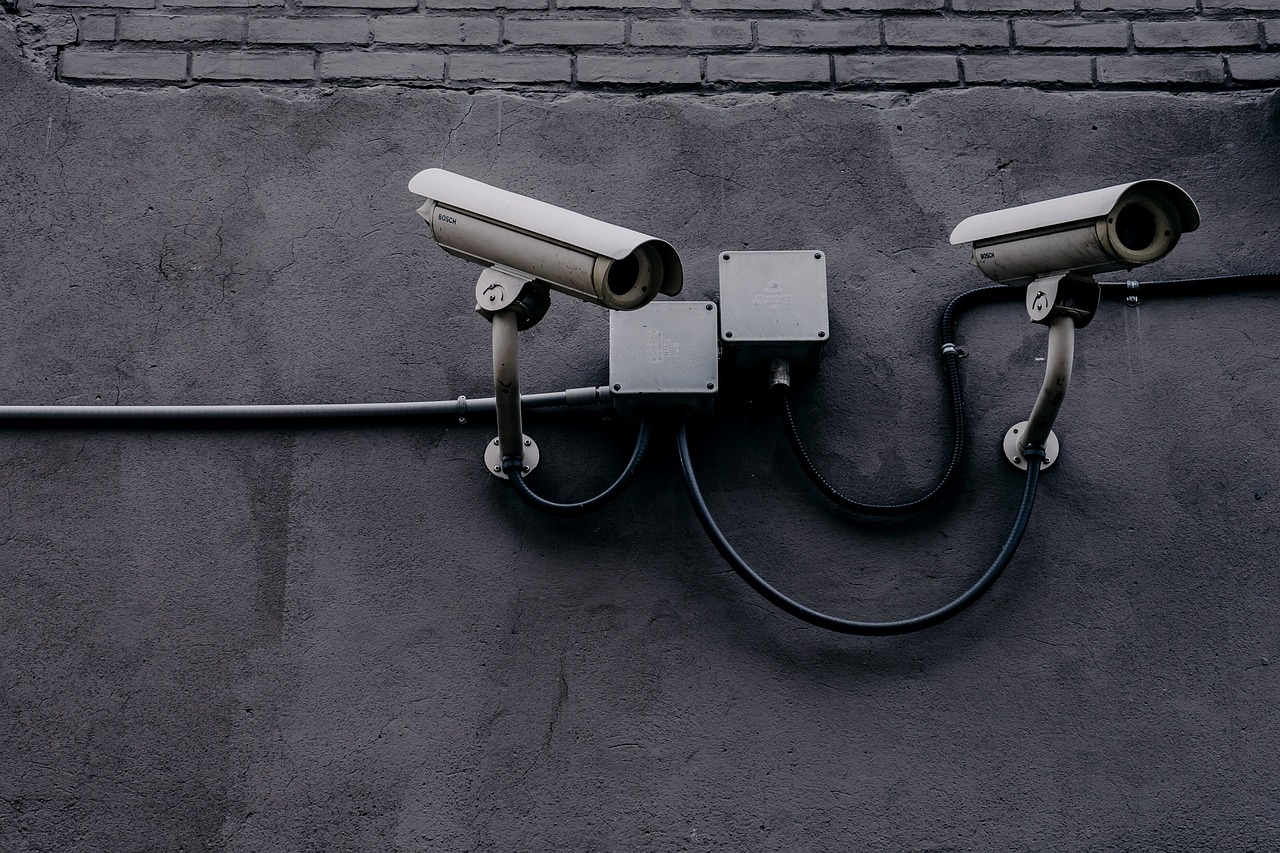
Regular Software Updates
When it comes to securing your cryptocurrency assets, one of the most overlooked yet vital practices is the regular updating of your wallet software. Think of it like maintaining a car; if you ignore those oil changes and tune-ups, you're setting yourself up for a breakdown. Similarly, keeping your wallet software up to date is essential for protecting against vulnerabilities that hackers are constantly exploiting. Each update often contains important security patches that can shield you from potential attacks, ensuring your digital assets remain safe and sound.
Many users might wonder, "Why do I need to update my wallet software regularly?" Well, the answer lies in the ever-evolving landscape of cybersecurity. As new threats emerge, developers work tirelessly to address these issues. By updating your software, you're not just getting the latest features but also fortifying your defenses against the latest hacking techniques. It's like adding an extra lock to your front door after hearing about a string of burglaries in your neighborhood—it's all about being proactive rather than reactive.
Another crucial aspect to consider is the importance of identifying software vulnerabilities. Staying informed about potential security issues can make a significant difference in how you manage your crypto assets. Regularly checking for updates and reading release notes can provide insights into what vulnerabilities have been addressed. To help you understand this better, here’s a quick overview of common wallet vulnerabilities:
| Vulnerability Type | Description | Mitigation |
|---|---|---|
| Outdated Software | Software that hasn't been updated may have known security flaws. | Regularly check for and install updates. |
| Phishing Attacks | Fraudulent attempts to obtain sensitive information. | Be cautious of unsolicited communications and verify sources. |
| Malware | Malicious software that can compromise your wallet. | Use antivirus software and avoid suspicious downloads. |
Enabling automatic updates can significantly simplify the process of maintaining wallet security. Many wallet applications offer a feature that allows them to automatically download and install updates as they become available. This means you won't have to remember to check for updates manually, and you can rest easy knowing that your wallet is always equipped with the latest security features. However, it's essential to ensure that your device settings allow for automatic updates and that you're connected to a secure network when downloading these updates.
In conclusion, regular software updates are a non-negotiable part of safeguarding your cryptocurrency holdings. By staying proactive and informed about the latest developments in wallet security, you can significantly reduce the risk of falling victim to cyber threats. Just as you wouldn’t drive a car with worn-out brakes, don’t leave your digital assets vulnerable by neglecting software updates. Make it a habit to check for updates regularly, and consider enabling automatic updates to keep your wallet secure without the hassle.
- How often should I update my wallet software? It's best to check for updates at least once a month or enable automatic updates if available.
- What happens if I don’t update my wallet software? Not updating can leave your wallet vulnerable to known security flaws that hackers can exploit.
- Are automatic updates safe? Yes, as long as you download from trusted sources, automatic updates can enhance your security.
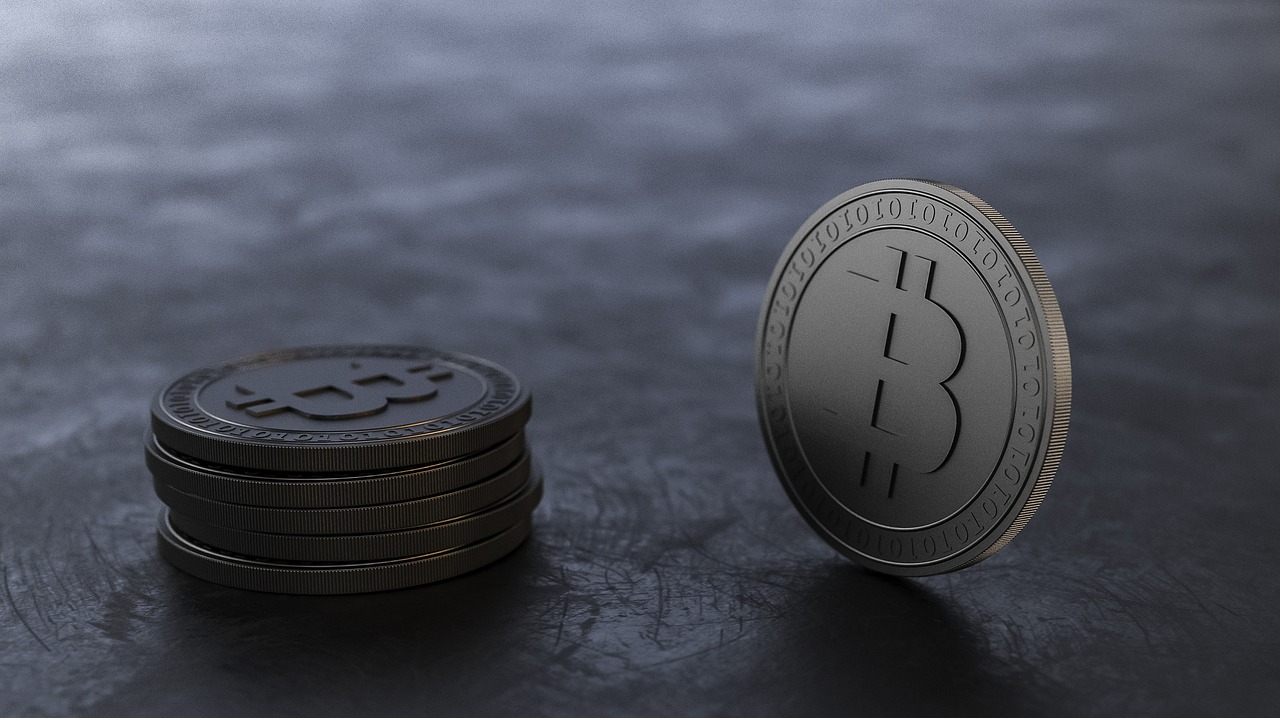
Identifying Software Vulnerabilities
In the fast-paced world of cryptocurrency, where the stakes are high and the technology is constantly evolving, is a crucial skill for any crypto investor. Every day, hackers are on the prowl, looking for weaknesses in wallet software that they can exploit to gain access to your valuable assets. So, how can you stay one step ahead and ensure that your crypto holdings remain secure?
First and foremost, it's essential to keep your eyes peeled for common signs of vulnerabilities. These can include anything from unusual software behavior to unexpected crashes. If your wallet software is acting strangely, it could be a red flag that something is amiss. Regularly monitoring your wallet's performance and being aware of any changes can help you catch potential issues early on.
Another key aspect of identifying vulnerabilities is staying informed about the latest security news in the crypto space. Many reputable sources, including security blogs and cryptocurrency news sites, regularly publish articles about newly discovered vulnerabilities and how to address them. By following these sources, you can stay updated on the latest threats and learn about patches or updates that may be necessary to protect your assets.
Moreover, always check for software updates from your wallet provider. Developers often release updates to fix bugs and vulnerabilities, so regularly updating your wallet software is a critical step in maintaining security. Some wallets even offer automatic updates, which can save you time and ensure that you always have the latest security features.
To facilitate your understanding, here’s a quick overview of the types of vulnerabilities you should be aware of:
| Type of Vulnerability | Description |
|---|---|
| Code Injection | When an attacker injects malicious code into the wallet software, potentially allowing them to manipulate transactions. |
| Phishing Attacks | Fraudulent attempts to acquire sensitive information by masquerading as a trustworthy entity in electronic communications. |
| Outdated Libraries | Using outdated libraries in your wallet software can expose you to known vulnerabilities that have already been patched in newer versions. |
Finally, consider utilizing tools that can help you scan for vulnerabilities. There are several software solutions available that can analyze your wallet and identify potential weaknesses. These tools can provide an additional layer of security by highlighting areas that need attention.
In conclusion, staying vigilant about identifying software vulnerabilities is not just a good practice; it’s a necessity in the world of cryptocurrency. By monitoring your wallet's performance, keeping up with security news, ensuring regular updates, and utilizing scanning tools, you can significantly enhance your defenses against potential attacks. Remember, in the crypto universe, knowledge is power, and being proactive is your best bet for securing your assets.
- What should I do if I suspect my wallet has a vulnerability? If you suspect a vulnerability, immediately cease any transactions and update your wallet software. Consider transferring your assets to a different wallet until you can ensure your current wallet's security.
- How often should I check for wallet updates? It’s a good practice to check for updates weekly or enable automatic updates if your wallet supports it.
- Are hardware wallets immune to vulnerabilities? While hardware wallets are generally more secure than software wallets, they are not entirely immune. Always follow best practices for securing your hardware wallet.

Benefits of Automatic Updates
In the fast-paced world of cryptocurrency, staying secure is not just a choice; it's a necessity. One of the most effective ways to bolster the security of your crypto wallet is by enabling automatic updates. But why, you might ask, is this feature so crucial? Well, let’s dive into the benefits.
First and foremost, automatic updates ensure that you are always equipped with the latest security patches. Cyber threats evolve at lightning speed, and software developers continuously work to identify and fix vulnerabilities that could be exploited by hackers. By allowing your wallet software to update automatically, you minimize the risk of falling victim to these threats. Imagine your wallet as a fortress; if the walls are not regularly reinforced, they become susceptible to breaches.
Moreover, automatic updates save you valuable time and mental energy. Instead of having to remember to check for updates manually, your wallet will take care of this for you. This means you can focus on what truly matters—trading, investing, or simply enjoying your crypto journey—without the nagging worry about whether your software is up to date. It's like having a personal assistant who keeps your digital assets secure while you concentrate on your next big move.
Another significant advantage is the reduction of human error. We all lead busy lives, and it's easy to forget to update software, especially when it comes to security updates that might not seem urgent. Automatic updates eliminate this risk by ensuring that your wallet is always on the latest version. Consider it a safety net that catches the mistakes we might make in our busy lives.
Additionally, keeping your wallet software updated can improve performance and introduce new features. Developers often roll out enhancements that not only fix bugs but also optimize the user experience. This means your wallet could run smoother and offer better functionality, allowing you to manage your assets more effectively. Think of it as upgrading your car; you not only get a safer ride but also enjoy a smoother drive with the latest tech.
In conclusion, enabling automatic updates for your crypto wallet is a straightforward yet powerful way to enhance your security. It keeps you protected from emerging threats, saves you time, reduces the chance of human error, and may even improve your wallet's performance. So, if you haven’t already, consider turning on this feature. Your future self—and your crypto assets—will thank you!
- What are automatic updates? Automatic updates are software updates that are installed automatically without requiring user intervention.
- Why are automatic updates important for crypto wallets? They ensure that your wallet is always secure with the latest patches and features, reducing the risk of vulnerabilities.
- Can I disable automatic updates? Yes, but it's not recommended as it can expose your wallet to security risks.
- How do I enable automatic updates? This can usually be done in the settings menu of your wallet application.
Frequently Asked Questions
- What is a cryptocurrency wallet?
A cryptocurrency wallet is a digital tool that allows you to store, send, and receive cryptocurrencies. Think of it as a bank account for your digital assets. There are various types of wallets, including hardware, software, and paper wallets, each offering different levels of security and accessibility.
- Why are private keys important?
Private keys are the secret codes that give you access to your cryptocurrency. If someone else gets hold of your private key, they can control your assets. So, managing your private keys securely is crucial to preventing unauthorized access and keeping your investments safe.
- How can I generate strong private keys?
To generate strong private keys, use a combination of upper and lower case letters, numbers, and special characters. Avoid using easily guessable information like birthdays or names. Additionally, consider using a password manager to create and store complex passwords securely.
- What is two-factor authentication (2FA)?
Two-factor authentication (2FA) is an extra layer of security that requires not only your password but also a second piece of information to access your account. This could be a code sent to your phone or generated by an authenticator app. It significantly reduces the risk of unauthorized access.
- How do I set up 2FA for my crypto accounts?
Setting up 2FA typically involves going into your account settings and selecting the option for two-factor authentication. You’ll then be prompted to link your phone or authenticator app. Follow the on-screen instructions to complete the setup, ensuring your account is more secure.
- What should I do if I lose access to my private keys?
If you lose access to your private keys, you may lose access to your cryptocurrency. This is why backing up your keys is vital. Always keep a secure backup in a separate location, such as a hardware wallet or a secure cloud service, to avoid losing access to your assets.
- How often should I update my wallet software?
It's recommended to check for updates regularly and install them as soon as they are available. Software updates often include important security patches that protect your wallet from vulnerabilities. Enabling automatic updates can help ensure you're always using the latest version.
- What are the benefits of using a hardware wallet?
Hardware wallets are considered one of the safest options for storing cryptocurrencies. They keep your private keys offline, making them less vulnerable to hacking attempts. Plus, they often come with user-friendly interfaces that make managing your assets easier.




